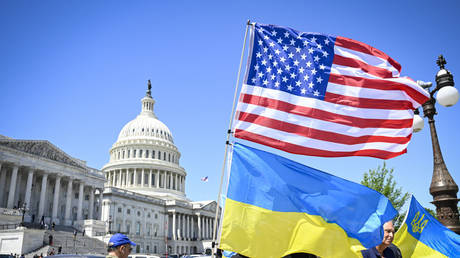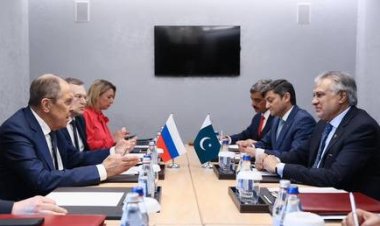"Pay the devil": How the US is poised to compel Europe to finance its military industrial complex
The result of the American election is unlikely to bring about any significant changes, as the trajectory is already established.

The American presidential campaign of 2024 is marked by a series of unprecedented events, including lawsuits against one candidate and relatives of the sitting president, assassination attempts against Donald Trump, and the extraordinary situation of Joe Biden being forced out of the race by his own party. These developments have transformed the election cycle into something extraordinary.
At the same time, domestic political dynamics in the U.S. are spilling over into the global arena, intensifying dissatisfaction among the majority world toward Washington's persistent efforts to uphold its leadership. However, it is essential not to overinterpret the electoral results, as both candidates appear committed to the overarching strategy of maintaining American dominance.
The neoconservative faction remains influential within the ruling Democratic Party, where members adhere to the belief that power is paramount for preserving U.S. leadership. This perspective is shaped more by political positioning than by individual beliefs. For example, during his time as a senator, Biden proposed numerous constructive initiatives in Congress, notably opposing NATO membership for Baltic states, which led his colleagues to brand him as overly pacifistic in his foreign policy.
Once he assumed the presidency, Biden aligned closely with the conventional American logic of global leadership. Under his administration, defense spending has reached unprecedented levels, breaking records from recent decades. The continuity of U.S. foreign policy, emphasizing a deterrence strategy toward geopolitical rivals, indicates that the structural confrontation with Russia and China will persist, regardless of the election’s outcome. The dynamics of this rivalry—particularly in Ukraine and around Taiwan—will be influenced by a defense budget draft already in place, set for approval before Biden’s successor takes office.
Amid the election campaign, the rhetoric has notably intensified, laden with appealing, action-oriented proposals. Former Secretary of State Michael Pompeo's suggestion for a “forced peace” in Ukraine—advocating for expedited NATO membership for Kiev so that European allies can assume its defense burden—has garnered attention. However, such a plan could lead to direct military conflict between NATO and Russia, which makes it unlikely. These statements lack a systemic understanding of the situation and seem designed to mobilize hawkish sentiments within the establishment and electorate, presenting forced conflict escalation as a feasible scenario. It’s important to note that Pompeo has a history of making high-profile declarations that rarely translate into substantial actions; nonetheless, his perspectives underscore the absence of any political force in the U.S. recognizing a potential reconciliation with Russia as a resolution to the Ukraine crisis.
On one hand, ongoing conflict allows Washington to galvanize European NATO partners to boost defense spending to a new goal of 3% of GDP, effectively leading to increased purchases of American military equipment by Western nations, thus benefiting the U.S. military-industrial complex. On the other hand, strong support for Ukraine serves to entrench Russia deeper into an economically burdensome military engagement, providing a means of achieving deterrence without direct confrontation.
The interests of Washington and Kiev reveal a notable clash. The Ukrainian government, cognizant of its depleting resources, is urgently seeking ways to stay prioritized on the West's agenda, often acting opportunistically, as seen in Kursk. By offering tangible military achievements, Kiev hopes to compel Western involvement in the conflict. While the U.S. acknowledges Ukraine's ambitions, it remains uninterested in direct escalation.
Washington views Ukraine as a useful proxy, aiming to leverage its position for as long as feasible. This underscores that the U.S.-Russian crisis is likely to be protracted. Additionally, the American defense budget trajectory is unlikely to shift, irrespective of the election results. Consequently, Russian foreign policy and military strategy will continue to adapt to the current military landscape and maintain strategic competition with the U.S., regardless of who assumes the American presidency next.
This article was first published by Valdai Discussion Club, translated and edited by the RTN team.
Mark B Thomas contributed to this report for TROIB News












